How an SVM Grad Turned Her Love for Horses into a Career
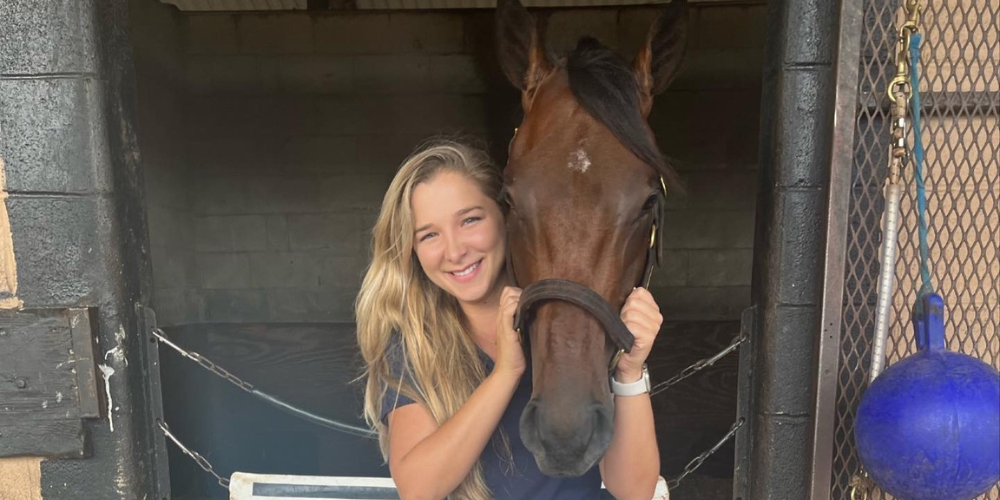
St. George’s University School of Veterinary Medicine graduate Adrianna Cuesta Amado, DVM ’21, prides herself on treating some of the most formidable athletes in the country. Her patients? Racehorses.
Growing up in her hometown of San Juan, Puerto Rico, Dr. Cuesta Amado was drawn to horses from an early age.
“I’ve always had a deep love for all animals, but horses always fascinated me,” Dr. Cuesta Amado said. “They are such majestic creatures, so strong yet so sensitive. Their eyes are a mirror to their souls, and they perceive people’s energy like no other animal.”
Today as an equine veterinarian in Boynton Beach, FL and Saratoga Springs, NY, Dr. Cuesta Amado works with some of the finest equine athletes in the sport as well as with some of the most renowned trainers and personnel.
She is responsible for providing medical care to thoroughbred racehorses such as lameness exams, routine check-ups, emergency care, and surgical procedures like castrations and wound repairs. She also works with trainers and groomers to develop and implement health and wellness plans curated for each horse.
“There are many, many aspects of my job that I really love,” she says. “One of my favorite parts of the job is getting to know these athletes, being able to help them feel their best, and seeing them win their races after a bit of help from me. Another equally favorite and gratifying part of my job is being able to connect with all the personnel that are involved with the horses and witnessing their love for them.”
Racing towards her dream
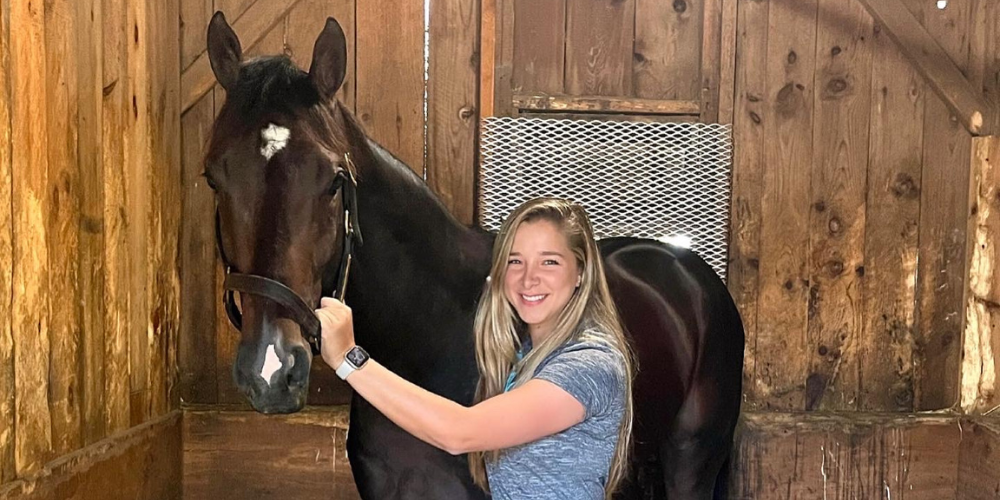
Dr. Cuesta Amado’s journey to becoming a veterinarian would not come without its obstacles. She was applying for veterinary school at a time when Puerto Rico did not have one. Dr. Cuesta Amado resolved herself to the sacrifice of leaving her friends and family in Puerto Rico to pursue her dream.
She chose SGU for its fully accredited veterinary program with ample hands-on experience. Given her love of horses, she was motivated by her peers and her family to specialize in equine medicine.
“SGU to me was the full package that offered many opportunities to work hard in a focused yet fun environment,” Dr. Cuesta Amado said.
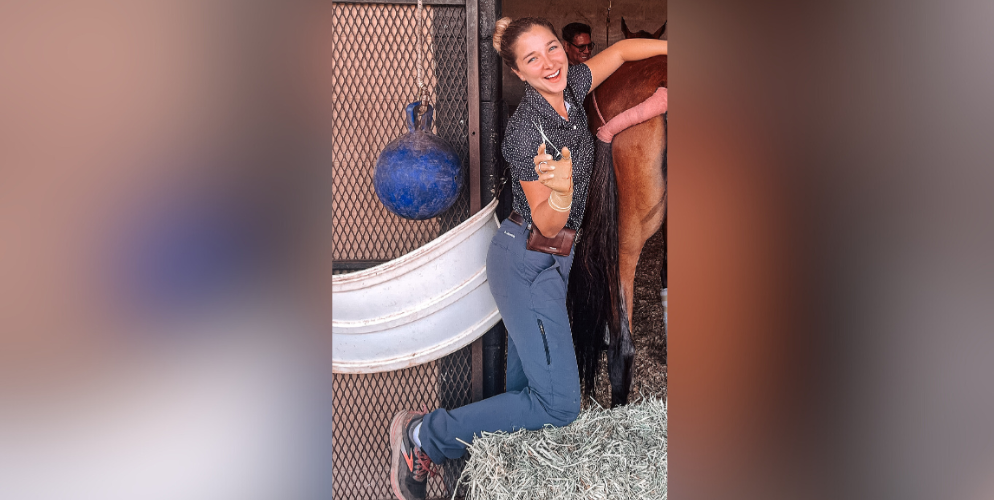
SGU connected her with valuable opportunities that would shape her career, including serving as secretary, vice president, and eventually president of the Large Animal Society. It was ultimately a faculty advisor who recommended that Dr. Cuesta Amado complete her clinical year at Texas A&M’s program, allowing her to participate in racetrack equine medicine and surgery.
“SGU definitely prepared me for that next step at Texas A&M with its hands on curriculum, extracurricular opportunities, and electives. The semester before going to clinicals ran in a rotation style very similar to my clinical year, which was very helpful for the transition,” said Dr. Cuesta Amado.
Following Texas A&M, Dr. Cuesta Amado secured an 18-month internship at Rood & Riddle Equine Hospital in Florida, where she delved deeper into her passion for equine medicine.
Meeting a need
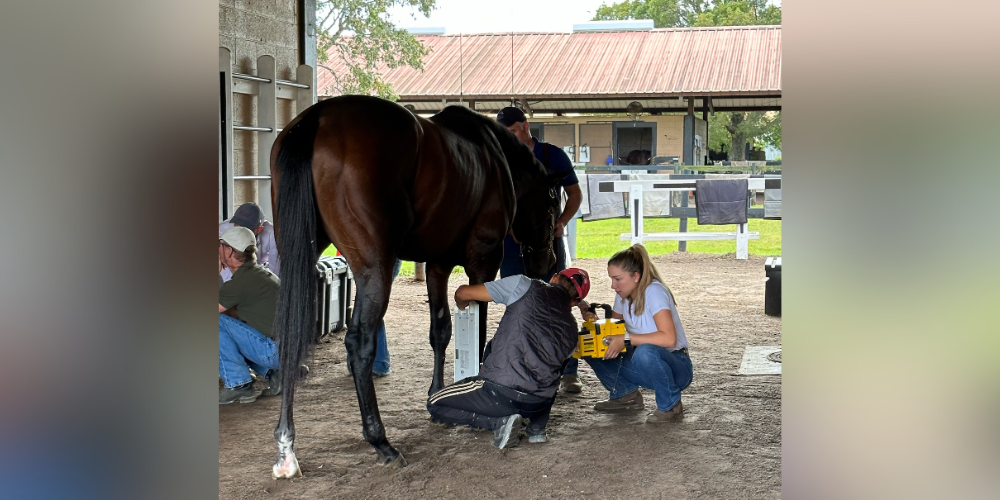
As an intern, Dr. Cuesta Amado quickly realized that practicing equine medicine put her at the forefront of a serious shortage of equine veterinarians in the US.
According to the American Horse Council, in 2023 there were roughly 6.65 million horses in the US, which contribute $177 billion to the economy across multiple industries. And yet, the American Veterinary Medical Association saw only 3,872 equine veterinarians in the same year.
“There just aren’t enough equine veterinarians. It’s making the profession a struggle in the work-life balance department,” said Dr. Cuesta Amado. “When it comes to racehorses, it becomes more niche. On any given day, I am responsible for around 200 racehorses. All these high-level athletes have very important roles and demand a lot from us.”
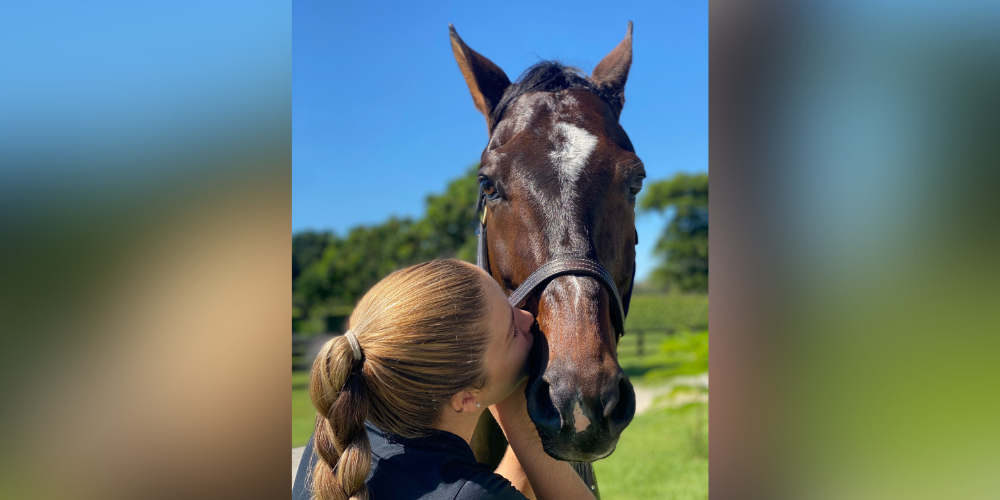
For those who are thinking of becoming a racetrack veterinarian, Dr. Cuesta Amado recommended being passionate about horses and making them feel their best, especially during racing season.
“You must be able to build trust with not only the horses but the people that care for them,” she added. “You must be prepared to always put the horse first and advocate for their well-being and best interest.”
Dr. Cuesta Amado said she wouldn’t change her chosen path for anything.
“Making my patients feel better, live healthier lives, or end their lives in the least painful, most peaceful way possible is a role I take extremely seriously,” she said. “The bonds I’ve been able to create with some of my patients I wouldn’t trade for the world.”
— Juliette Kimmins
Related reading:
• VIRMP 2024: 28 SGU Students Secure Competitive Veterinary Internship and Residency Positions
• SVM alumna featured on Animal Planet TV series
• From the Deep South to Down Under: How this SVM grad found “the place to be”

